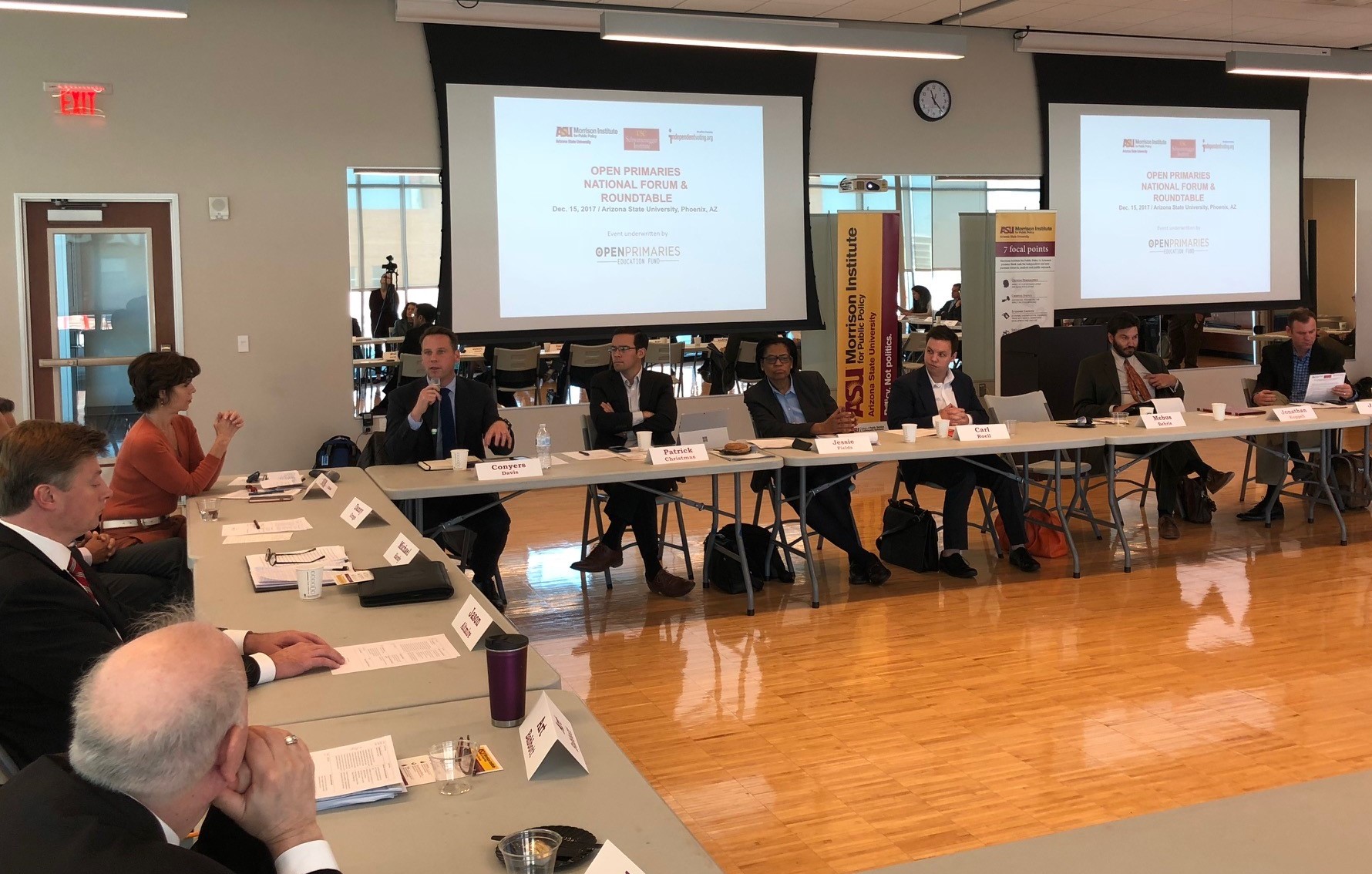Governor Schwarzenegger founded the USC Schwarzenegger Institute with the mission of advancing post-partisanship and encouraging leaders to put people over political parties to work together to find the best ideas and solutions to benefit the people they serve. To achieve this goal the Institute regularly works with leading politicians, academics and policy practitioners to study political reform solutions to some of the most serious and polarizing issues we face. One solution that the Institute has studied in-depth is the top-two primary system that requires candidates to run in a single primary open to all voters and where the top-two finishers, regardless of party, advance to a general election runoff. Governor Schwarzenegger campaigned successfully to pass Proposition 14 that created an open primary in California and the Institute continues to monitor its impact on polarization and hyper-partisanship.
On December 15th a Schwarzenegger Institute delegation, led by USC Professor and Institute Faculty Fellow Christian Grose and Institute staff members Conyers Davis & Mebus Behrle, traveled to Arizona State University to participate in the Open Primaries National Forum and Research Roundtable. The objective of the event, which was co-hosted by the ASU Morrison Institute for Public Policy, Independent Voting and the USC Schwarzenegger Institute and funded by the Open Primaries Education Fund, was to review current research, scholarship and on-the-ground experience of open primaries and their impact on voters and governance through an interdisciplinary day of analysis and discussion. Academics from some of the nation’s leading public policy programs and number of well-known political consultants participated in the roundtable and worked together to identify gaps in knowledge and prioritize a set of research questions for future study. Professor Grose teamed up with professor Andrew Sinclair from New York University and Betsy Sinclair from Washington University in St Louis, to present their latest research on the politics of the primary and how different primary systems impact candidate responsiveness and voter behavior. Eric McGhe from PPIC discussed his research in California and Washington State on how the top-two primary has increased moderation in each state. Thad Kousser, from the University of California San Diego, explained that the full impact of the open primary has not been achieved yet but feels that it has the potential to empower voters and encourage moderation in candidates.
Click here to see all presentations and research presented at the foum
Prominent political consultants Danny Ortega, Michael Hardy and Harry Kresky joined County Supervisor Art Babbott and former Congressman Jason Altmire to discuss their first-hand experiences with open primaries. Danny Ortega, referencing his experience organizing the Latino community in Arizona, said that open primaries have the potential to empower voters who are often ignored in closed primary systems. Harry Kresky, General Council at Independent Voting, and Michael Hardy, General Council at the National Action Network, both spoke to the fundamental fairness of the open primary and why they support it from a moral perspective. Jason Altmire, former congressman and author of Dead Center: How Political Polarization Divided America and What We Can Do About It , discussed his experience in congress and why he believes open primaries incentivize politicians to work across the aisle and reduce polarization.
The roundtable concluded with an in-depth conversation on what areas of research were need to learn more about open primaries and their impact on moderation and candidate behavior and to especially understand more about the “independent voter” who now exceed the number of Americans registered to both major political parties. The group agreed that additional research is needed to establish criteria for evaluating top-two and open primaries, effect of spending in open primary contests, performance of presidential candidates in open primary states verse close primate states, the impact of timing on open primary races and effect of national politics on local open primary races. The Schwarzenegger Institute, the Morrison Institute, Independent Voting and Open Primaries all agreed to continue studying this important issue by commissioning additional studies and convening research roundtables.



